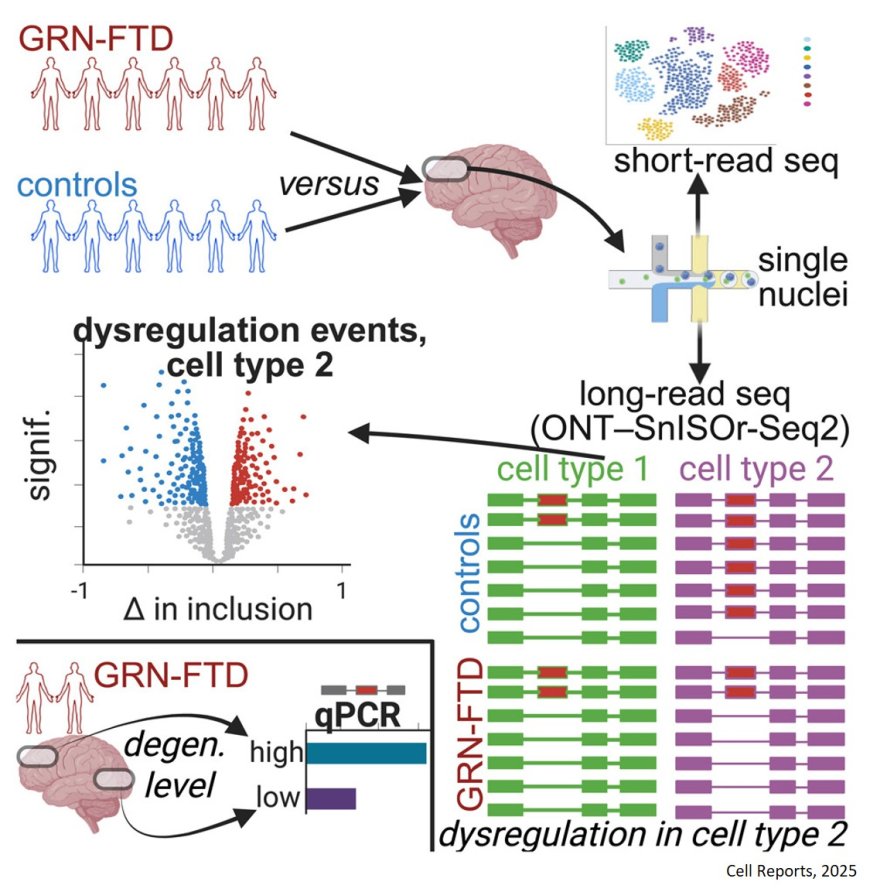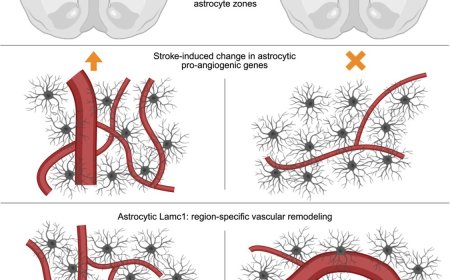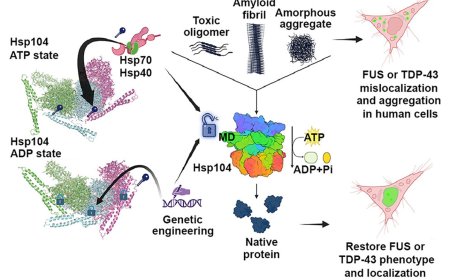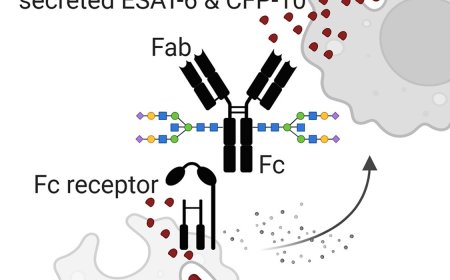Cell-type-specific and broad splicing dysregulation in FTD

Exon dysregulation Is linked to familial FTD with TAR DNA-binding protein 43 (TDP-43) pathology but not much is known about this dysregulation in glial and neuronal cells.
The researchers conducted a case-control study of splicing in frontotemporal dementia using long-read sequencing.
They identified multiple splicing dysregulation events, including cell-type specific ones; up to 30% would be masked by other cell types without single-cell resolution.
In separate samples, similar differences were seen between more- and less-affected brain regions with FTD-prone frontal cortex exhibiting more FTD-associated splicing patterns than the occipital cortex.
https://www.cell.com/cell-reports/fulltext/S2211-1247(25)00969-6
https://sciencemission.com/splicing-dysregulation-in-human-brain













